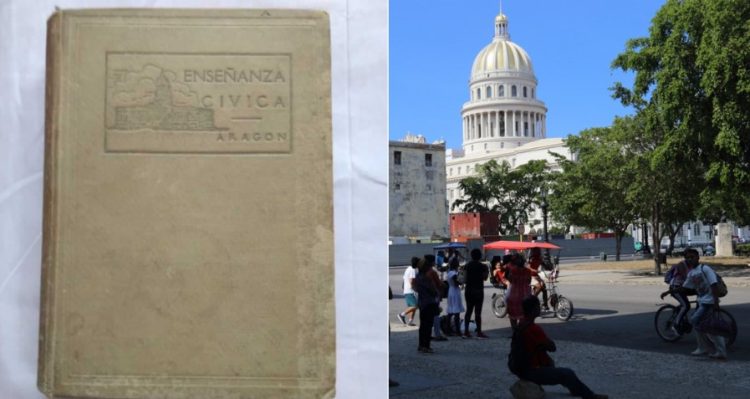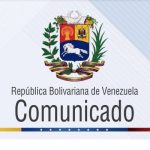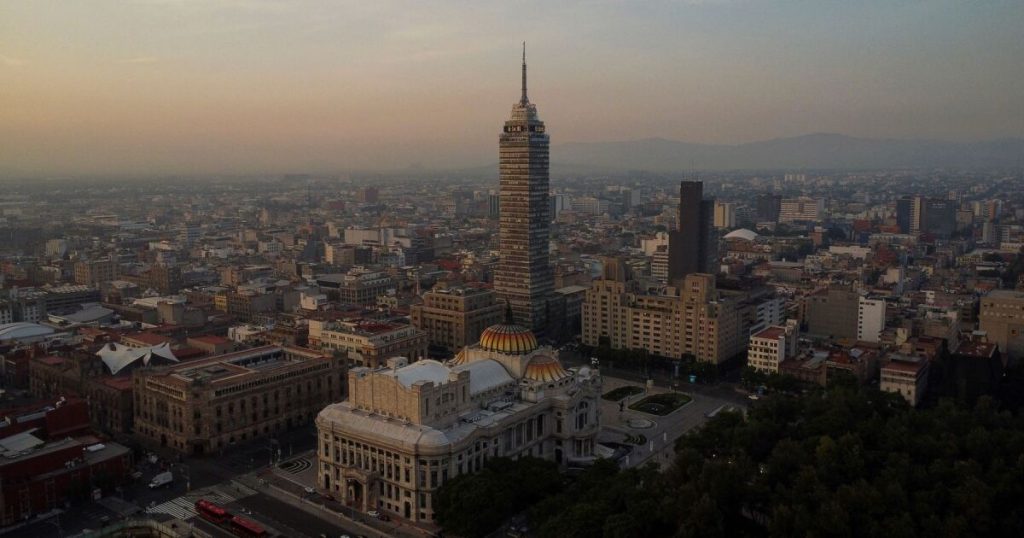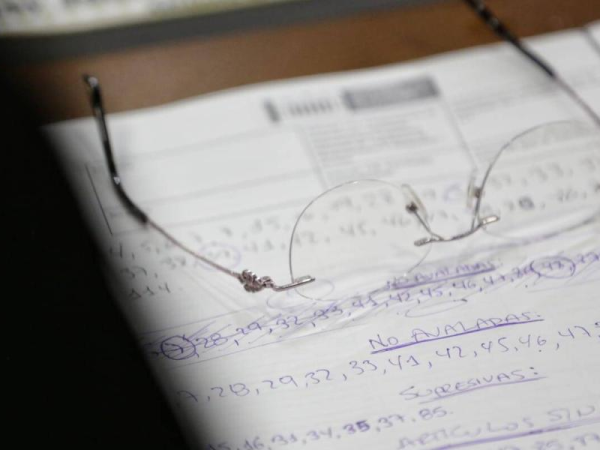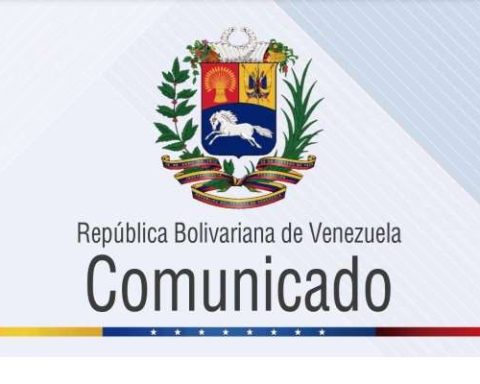HAVANA, Cuba.- A subject in the schools of the Republic It was Moral and Civic Education, which was taught with a textbook using simple, easy-to-understand language.
I recently found one of the few bookstores remaining from the purchase and sale of used books, a copy entitled: Civic Educationby Dr. Gustavo A. de Aragón, who was an eminent student at the University and a professor by opposition of that subject, at the Institute of Havana. The book, printed by Editorial Cultural SA in 1928, in its fourth edition, bound in cloth, and with very legible letters, has the particularity of having printed phrases in “bold” that help the reader or student to better understand the content.
The index consists of: Introduction, The State, The Government, The Individual, Political Evolution of Cuba and an Appendix. Each chapter is divided into sections that include the subject dealt with in a marginal note, as an aid to finding the precise subject, without having to read the entire topic.
The topics discussed include: The Homeland, The Cuban Nation, Elements of the State, Composition of the Government; Public Powers, Forms of Government, Functions of the Government, Budgets, Taxes, Currency, Citizenship, Individual Freedom, Suffrage, and others.
At the beginning, the definition of Civic Education is expressed: “It is the practical science that aims to prepare citizens for the functions they have within the State, through teaching the rights and duties that every man has in it, as an individual and as a citizen.”
He later clarifies that: “…the purpose of Civic Education is to prepare citizens so that they can consciously and fruitfully carry out their functions within the State” and “to instruct them in the rights and duties that every man has, as a simple individual and as a citizen, that is, as an integral member of a State.”
Based on these first two ideas, he breaks down in detail in each chapter the concepts of State and Government, their functions, how they are composed and their differences. He points out that sometimes the mission of the State, which is to legislate, and that of the Government, which must comply with the established laws and enforce them, are confused.
Regarding Law, he explains that it is “the set of laws, uses and customs that make social life possible, harmonizing the interests of individuals among themselves or of individuals and the State.”
With reference to public opinion, he says: “For public opinion to be spontaneous, sincere, and healthy, the free expression of thought is necessary; where this right does not exist, in a despotic regime, opinion is not healthy; it is vitiated by fear or flattery, and is never a reflection of popular sentiment.”
He points out that: “The existence of political parties is a necessity in democracies, because by channeling opinions, they allow us to know what the opinion of the majority of the country is, facilitating the realization of the popular will.”
These are just three quotes. The book would need to be reproduced in its entirety to understand the value contained within its pages.
The volume, which has 472 pages, ends with a “Summary of the Political History of Cuba” and the appendix where some of the main documents of our annals appear, such as the Constitutions of Guáimaro, Jimaguayú, La Yaya, the Constitution of 1901which was in force when the book was published, and the main treaties that then existed with the United States.
Today, citizens are expected to learn about government functions and the country’s laws through the Official Gazette, with legal language intended for lawyers and specialists, which creates more confusion than discernment among the population.
After 1959, the teaching of Morality and Civics was removed from the school curriculum in Cuba. A little book called Formal Education It is a poor imitation of those texts of Morality and Civics, which taught the social behavior of people, the structure of the government and its laws.
For the regime, what is important is “Political Education”, the indoctrination instilled repeatedly at all times and by all available means, through teachers and the widespread propaganda.
OPINION ARTICLE
The opinions expressed in this article are the sole responsibility of the person issuing them and do not necessarily represent the opinion of CubaNet.
Follow our channel WhatsApp. Receive the information from CubaNet on your cell phone through Telegram.
